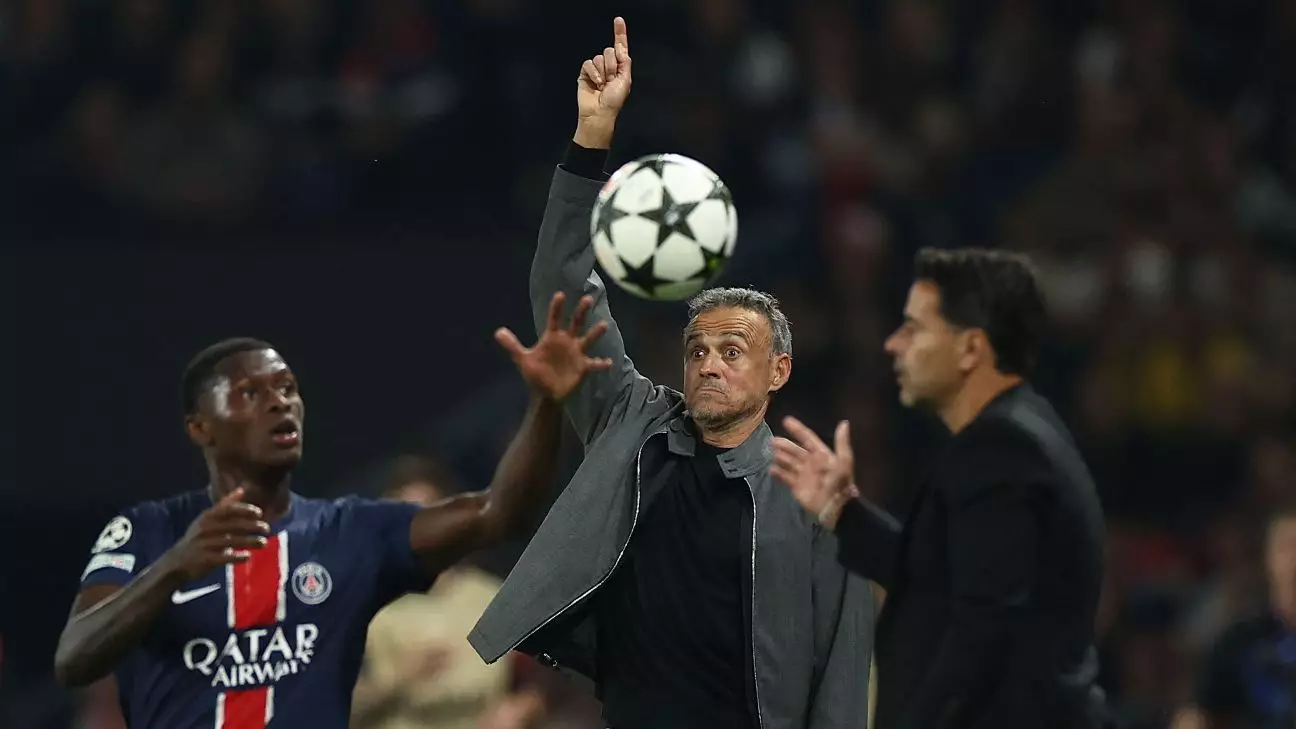In the world of football, change is often the only constant. Paris Saint-Germain (PSG) manager Luis Enrique recently expressed his thoughts regarding the uncertainties surrounding the newly revamped Champions League format after his team won a tightly contested match against Girona. Although PSG secured a 1-0 victory, the match revealed much more than just the scoreline. Enrique’s remarks highlighted the complexities and unpredictabilities that define this new era of European football.
The Champions League has undergone significant modifications, with an innovative league phase replacing the traditional group format. Teams are now required to play eight matches against different opponents, resulting in a unique configuration where the top eight teams seamlessly advance to the knockout stages. This structural overhaul aims to enhance competitive balance, but it introduces a layer of uncertainty. Enrique underscored this point by questioning the implications of the new format on the prestige and importance of individual victories. For managers, players, and fans alike, assessing the value of a win in such an unpredictable setting can be an arduous task.
While PSG’s triumph over Girona appears commendable on paper, the broader context remains ambiguous. “We don’t know the dimension of this competition with this format,” he stated, emphasizing that future matches may unravel the competitive intricacies or imbalances that could arise. As the team prepares to navigate through upcoming fixtures, the question remains: how will they measure success when the parameters of achievement are still being defined?
During the match itself, PSG’s dominance in ball possession was evident, yet Girona’s tenacity created a formidable challenge. The visitors employed a tactical approach that kept the scoreline level for much of the contest. Enrique acknowledged the difficulties they faced on the pitch, noting, “Girona played us in circles and made us dizzy.” It serves as a reminder that football is as much about strategy as it is about skill. While PSG may be laden with star power, the match illustrated that teamwork, focus, and resilience from the opponents can complicate matters, challenging the expectations associated with being a heavyweight in European football.
The decisive moment came late in the game when an unfortunate error by Girona’s goalkeeper, Paulo Gazzaniga, allowed a shot from Nuno Mendes to slip through. Despite continual frantic attempts to secure the win, the situation attests to the concept that sometimes, victory is determined by a single moment of miscalculation. PSG’s win may speak to their overall superiority, yet it won’t mask the salient fact that they experienced prolonged periods of frustration throughout the match.
Enrique’s colorful expression of the match’s intensity—comparing it to the pains of childbirth—further illustrates the strenuous effort required in modern football. Such comments painted a vivid picture of the pressures and emotions managers experience as they navigate high-stakes matches.
While celebrating their victory, the match was not without challenges for PSG. The injury of striker Marco Asensio just before halftime casts a shadow on an otherwise triumphant evening. Enrique remained optimistic about the team’s depth, suggesting that, regardless of individual losses, his squad is equipped to handle adversity. This perspective reinforces a broader tenet of professional football: the necessity of resilience and adaptability within teams.
Conversely, Girona’s coach, Michel, chose to adopt an optimistic outlook despite the loss. He praised his players for their effort while acknowledging that PSG’s victory was well-deserved. Michel’s reaction reflects a commendable attitude common among managers dealing with defeat. Recognizing the hard work from his squad can serve as a motivational catalyst, urging players to focus on building from their experiences rather than being bogged down by disappointment.
As PSG prepares for their next Ligue 1 match against Reims, and Girona gears up for a La Liga fixture, the world of football continues to evolve, highlighting new challenges and opportunities. In this unpredictable landscape, Luis Enrique’s astute observations remind us that victories—or defeats—hold dimensions that extend far beyond the final score. With the new Champions League format charting a course into uncharted territories, teams must remain adaptable, strategic, and resilient to find their footing amidst the unknown.

